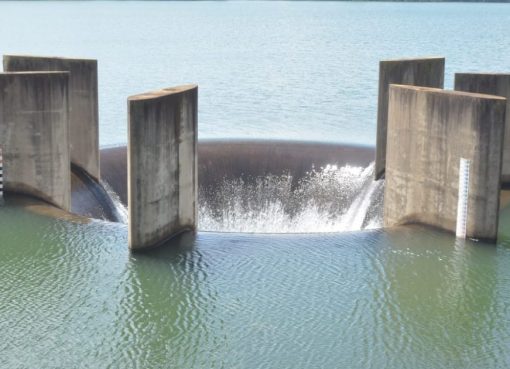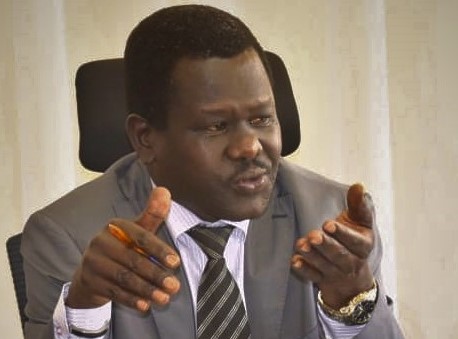The government has beefed up security in restive areas of the country to avoid disruption of the Kenya Certificate of Primary Education (KCPE) and Kenya Primary School Education Assessment (KPSEA) examinations.
The state has further affirmed that it has crafted a multiagency team to ensure that all systems are in place to guarantee the credibility of KCPE and KPSEA examinations and that the process runs smoothly.
Education Principal Secretary Dr. Belio Kipsang said that the government had left nothing to chance, bearing in mind that this was the last time that pupils in Kenya would be sitting for KCPE.
Speaking when he oversaw the opening and distribution of KCPE and KPSEA examination papers at the Nakuru-East Deputy County Commissioner’s offices, Dr. Kipsang disclosed that detectives were interrogating a teacher who was found to have opened 10 social media accounts with a suspected intention of engaging in exam cheating and irregularities.
“Last week, one teacher was nabbed after being found to have opened 10 social media accounts for ulterior purposes related to examination cheating or fraud. I am grateful to our security personnel for acting swiftly. We are also working closely with the Communication Authority of Kenya (CAK) and the whole system to ensure that there are no examination irregularities,” the principal secretary indicated.
Dr. Kipsang, who was flanked by Rift Valley Regional Commissioner Dr. Abdi Hassan and County Commissioner Mr. Loyford Kibaara, revealed that two command centres had been set up to supervise the administration of the examinations, with one stationed at the Kenya National Examination Council (KNEC) headquarters and another one based at the Ministry of Interior.
“The Ministry of Interior will play a leading and critical role in the execution of the task and support the Ministry of Education in coordination, logistics, and the provision of 24-hour security during the exam exercise,” he said.
The Principal Secretary assured parents that the Ministry of Education had undertaken to ensure that no child missed the examinations due to failure to be registered, natural calamities, and insecurity in various parts of the country. He stated that additional security had been dispatched to restive parts of the Rift Valley region.
Dr. Kipsang put on notice centre managers, security personnel, and teachers who could be harbouring intentions of engaging in examination malpractices.
“We have firmly instructed our officers to institute in-depth investigations in the event malpractices are reported so that necessary action is taken against those who may have ulterior motives. Those who failed to register our pupils will not be spared either. We are alive to the fact that this is our last KCPE, and we do not want any child to be disadvantaged,” stated the Principal Secretary.
Dr. Kipsang indicated that over 24 million Kenyans, which translates to 70 per cent of Kenya’s population, have sat for KCPE in the last 38 years.
At least 360,000 candidates took the KCPE examination for the first time in 1985, ushering in the 8-4-4 system.
According to Dr. Kipsang, about 1.4 million learners registered for this year’s KCPE, the highest number in the history of the exam.
Another 1.2 million Grade Six learners are expected to sit KPSEA.
Before 8-4-4, there was the 7-4-2-3 curriculum consisting of seven years of primary education, four years of secondary education, two years of high school, and 3–5 years of university education.
The principal secretary said all is ready, all the way from the opening of containers, adding that it will be a whole-of-government approach and senior officials will participate in the exercise to encourage the candidates.
“We want to give assurance that our exams are safe. You know, technology has its own issues, but we have the Directorate of Criminal Investigations, the gurus in ICT, but in whatever media, our exams are safe. I want to assure the country that we have put everything in place to ensure the integrity of our exams both locally and internationally is respected,” he said.
Kipsang said the government has an additional 82 containers to make it easier for teachers to collect the papers and has also increased the number of marking centres from 35 to 40.
While pledging that the state will expedite payments of invigilators, centre managers, security officers, and other individuals involved in the administration of the examinations, the PS also assured centre managers that the government had put in place measures for the Kenya Certificate of Secondary Education (KCSE) exam and that they would be adequately facilitated as they would be required to pick up the papers twice a day.
The Kenya National Examination Council (KNEC) is using 576 distribution containers for KCPE and KPSEA, while 567 others will be used for KCSE, which is an additional 82 compared to last year.
Dr. Kipsang noted that areas with difficult terrain and related challenges, such as Wajir and Marsabit, will have the exams airlifted directly from Nairobi due to security concerns.
He added, “The Ministry would like to assure the nation that adequate preparations have been undertaken to ensure and achieve a credible examination process. Necessary safeguards have been put in place to guarantee the efficiency and integrity of the examination and assessment process.”
The government, he said, has deployed at least 60,000 security agents across the country to secure examination centres and ensure the credibility of the tests.
He said security officials will be tasked with manning the containers and protecting students, teachers, and supervisors.
The first KCPE examinations were done in 1985, when they replaced the CPE examinations under the 7-4-6-3 curriculum.
The Competency Based Curriculum, popularly known as CBC, will now replace the 8-4-4 system.
The integrity of these exams, Dr. Kipsang affirmed, must be upheld and jealously guarded, unlike in the past when exam cheating became the norm rather than the exception.
“Exam cheating allows students to proceed to the next level of education for which they are not well prepared. In the end, this gives the country graduates who barely understand their areas of specialisation,” he observed.
Unlike the 8-4-4 candidates, who will be striving to score 100 per cent in the national tests, the KPSEA candidates will only seek to attain 40 per cent in the national tests.
The rest of the marks—60 per cent—for the CBC learners will have been scored by teachers during school-based assessments administered at Grades 4, 5, and 6.
Rift Valley Regional Commissioner Dr. Hassan Abdi said all the examination centres were secure.
He said the government had put in place elaborate measures to ensure the security and integrity of the examinations across the region.
“The government has deployed adequate security at various examination centres across the region, including the areas of Samburu, Elgeyo Marakwet, West Pokot, and Baringo, to ensure that the exercise runs smoothly,” Dr. Hassan stated.
He assured parents of the government’s commitment to ensuring that every registered candidate sat for the examinations.
Dr. Hassan warned that anyone attempting to disrupt the examinations will be dealt with severely under the law.
He also banned non-examination officers and unauthorised persons from setting foot in schools.
“Only examination officers and security personnel will be allowed in schools. Security personnel and education officers will patrol all examination centres from morning until evening to ensure that nobody disrupts the exercise,” added the administrator.
By Anne Mwale




